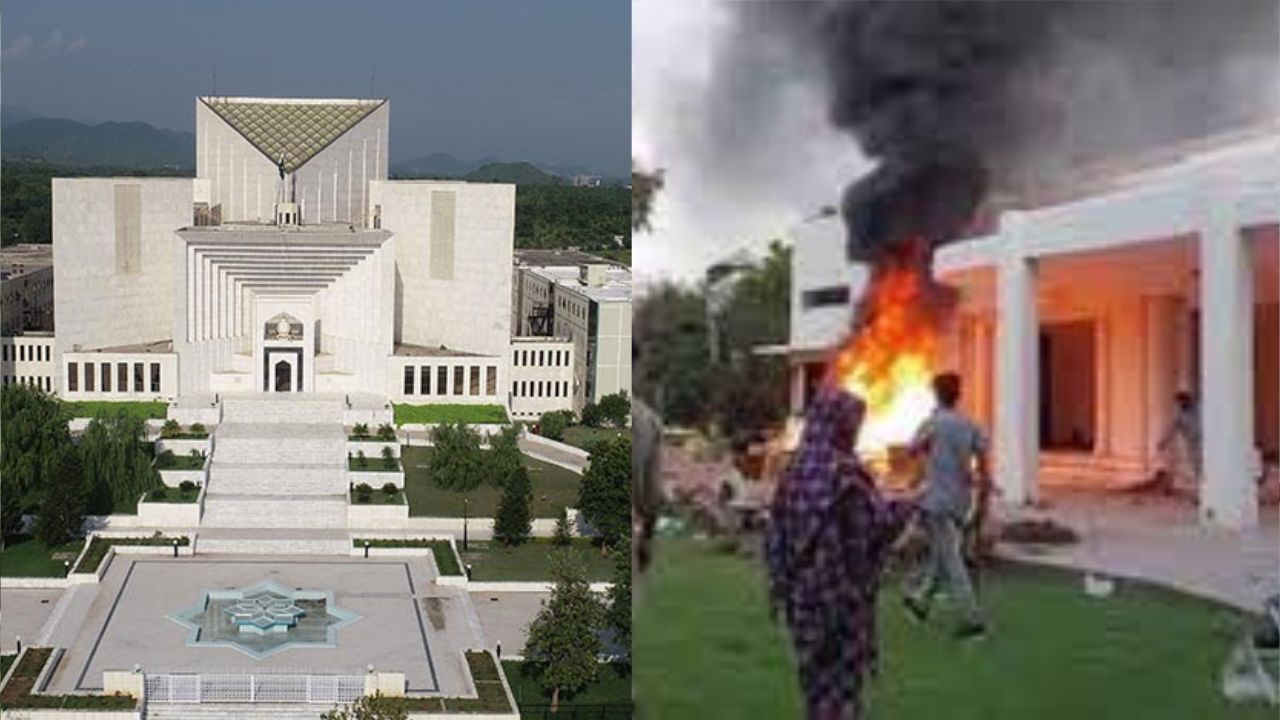Barrister Ahmed Naveed
Imran Khan’s upcoming trial in Pakistan for inciting violence during protests following his arrest in May 2023 raises several critical questions with significant political implications. Here’s a detailed analysis:
1. The Allegations and Context:
The charges against Khan stem from violent demonstrations triggered by his arrest on corruption charges. While his supporters maintain his innocence, the scale of the unrest, including attacks on military and government buildings, demands accountability. This incident highlighted the volatile political climate and challenges surrounding freedom of expression and dissent in Pakistan.
2. Political Timing and Motivations:
The timing of the trial, just days before national elections, raises concerns about political motivations. Khan alleges the charges are politically motivated to sideline him and his party. This narrative resonates with his supporters and fuels accusations of government manipulation. However, dismissing the legal process solely based on timing risks undermining the pursuit of justice.
3. Military’s Role and Historical Tensions:
Khan’s history of strained relations with the powerful military adds another layer of complexity. His accusations of their involvement in his removal and alleged support for the current government cast suspicion on the neutrality of the legal process. However, without concrete evidence linking the military to the charges, dismissing the trial as solely politically motivated can be misleading.
4. Due Process and Fair Trial Concerns:
Khan’s previous sentences in other cases raise concerns about the fairness of the legal system. Ensuring transparent and unbiased proceedings is crucial to upholding the rule of law and public trust. Allegations of political interference must be thoroughly investigated, and Khan deserves a fair trial regardless of his political standing.
5. Impact on National Elections and Political Stability:
The outcome of the trial and its perception by the public will likely influence the upcoming elections. Khan’s supporters view him as a victim of political persecution, potentially galvanizing their opposition to the existing political order. Conversely, a conviction could legitimize the government’s actions and dampen support for Khan’s party.
Evaluating Imran Khan’s trial solely through a political lens is insufficient. While concerns about political motivations and fair trial concerns warrant scrutiny, dismissing the legal process entirely hinders accountability for potential wrongdoing. A nuanced approach that critically examines the evidence, the political context, and the adherence to due process is necessary to form an informed and objective opinion. Remember, upholding the law and ensuring a fair trial, regardless of political affiliations, is crucial for long-term political stability and public trust in Pakistan’s democratic institutions.
The upcoming trial of Imran Khan and Shah Mahmood Qureshi raises significant concerns about fairness, transparency, and political motivation. It is crucial to monitor the proceedings closely and ensure that they adhere to due process and uphold the principles of justice. The potential consequences of the trial are far-reaching, and it is important to consider its impact on the upcoming elections and the broader political climate in Pakistan. The trial of Imran Khan and Shah Mahmood Qureshi is a highly sensitive case with significant political and legal implications. It is essential to approach the situation with a critical lens, considering the political context, legal considerations, and potential consequences. Upholding the rule of law and ensuring a fair and transparent trial will be crucial for maintaining stability and strengthening democracy in Pakistan.
















